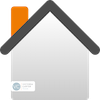
STEP FOUR: PREP YOUR HOME
08/01/2017
STEP THREE: SELECTING A REAL ESTATE AGENT
08/02/2017 STEP TWO: DETERMINING WHETHER YOU CAN AFFORD A NEW HOME
STEP TWO: DETERMINING WHETHER YOU CAN AFFORD A NEW HOME
Nothing causes greater stress and disappointment than chasing after homes that are out of reach.
Start your search with an honest assessment of what you can comfortably afford to spend. Here are some important considerations:
- Keep your house payments affordable
Most lenders consider home payments to be affordable if the combined mortgage, property tax, and homeowner’s insurance costs equal 28% or less of the owner’s gross income. While this is a good starting point in calculating your affordability level, don’t forget to contemplate other costs – utilities, commuting expenses, maintenance. - Review your available cash on hand
Standard mortgage programs require a minimum down payment of 20% of the purchase price. While numerous alternative programs exist, many of these require the buyer to purchase private mortgage insurance or carry higher interest rates – all of which can considerably increase the monthly payment. In addition to the down payment, a homebuyer can expect to spend 4-8% on closing costs. Don’t forget moving expenses, decorating costs, and any necessary repairs. - Assess the interest rate environment
Buying a home when interest rates are low can dramatically affect how much house you can afford. A buyer who can afford the payments on a $170,000 mortgage at 10% can manage a $200,000 loan at 8%. That’s $30,000 of extra buying power for the same monthly payment. - Determine your own financial comfort level
While rules of thumb can be useful when determining affordability, each buyer really has to consider his or her own lifestyle and financial situation. Do you have large expenses in addition to your home? Will you want to purchase new furniture or do you have everything you need? - See if your employer will provide assistance
Companies often provide financial assistance to transferred employees. Some employers pay for moving and relocation costs. Others offer payments to help employees moving into areas with high real estate values. Any benefits of this type can help extend your affordable price range, so find out if your employer provides any assistance. - Consider the tax advantages of home ownership
While housing markets can be turbulent and values occasionally decline, owning a home remains an attractive investment over the long term. Additionally, don’t forget to consider the tax advantages of home ownership – mortgage interest is deductible and profits from the sale of a home are usually exempt from capital gains taxes. The U.S. tax structure is set up to encourage the purchasing of homes. Unlike the paying of rent, taking advantage of this tax savings measure can equal thousands of dollars in your pocket each year.
Homeowner Tax Breaks
Favorable tax treatment is a major benefit of homeownership. The tax breaks offered to homeowners can substantially increase affordability and investment returns. For example:
- Mortgage interest is deductible
Interest from a home mortgage is fully deductible from income taxes. Since mortgage payments in the early years of a loan consist primarily of interest, this tax break has long helped buyers afford new homes. The deduction applies to interest on up to $1,000,000 in loan proceeds used to purchase or build a primary and/or secondary home. - Home equity interest is deductible
Interest on a home equity loan of up to $100,000 is deductible, regardless of the use of the proceeds. - Property taxes are deductible
Property taxes paid to local or state authorities are deductible from federal income tax returns. - Capital gains are tax-exempt
Capital gains – the profit made when an appreciated home is sold – are completely exempt from taxation, subject to certain limits and conditions. Single filers may exempt total gains of $250,000 and married couples, $500,000. This exemption is subject to a number of qualifications, but usually, applies to any property the taxpayer has lived in for two of the previous five years. - Increased cost basis for home improvements
Money spent on certain home improvements adds to your cost basis for the house, reducing the amount of any capital gain upon sale. Be sure to keep all receipts and records from home improvement projects.
If you have decided that you can afford a new home, it’s time to get organized and start your home search!





